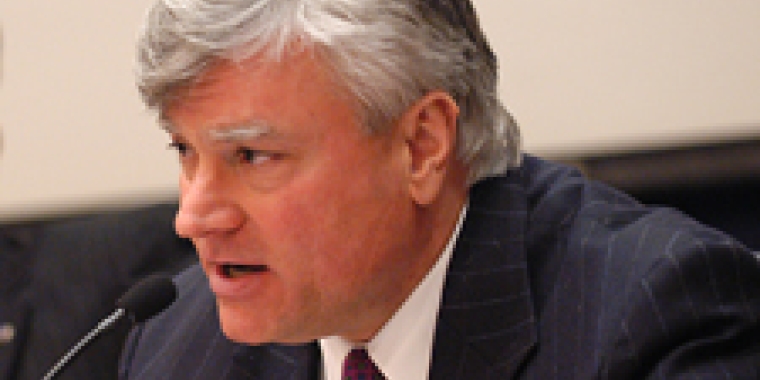
Senator Nozzolio Eyes Crackdown On Medicaid Fraud

Albany – As part of his on-going efforts to reduce the burden on New York’s taxpayers, Senator Michael F. Nozzolio (R-Fayette) joined Senate colleagues today to call for a comprehensive overhaul of the state’s Medicaid fraud detection effort and dramatically reduce corruption and waste in New York’s Medicaid program.
“The expense of the Medicaid program is crippling our county governments and causing massive increases in local property taxes,” said Senator Nozzolio. “It is imperative that my colleagues in the Legislature come together to adopt legislation that will restore accountability to the Medicaid program, and ensure that tax dollars are being used only as they are intended.”
The State Senate is proposing legislation that will restructure the detection, investigation and prosecution of Medicaid fraud in New York. The legislation will strengthen and streamline the roles of the Health Department and Attorney General and will create a new position of Medicaid Inspector General to help uncover fraud, waste and abuse. Key to the success of the Senate’s proposal is the creation of a state-of-the-art computer fraud detection system.
The U.S. General Accounting Office estimates that a minimum 10 percent of Medicaid expenses -- and as much as 30 percent -- are diverted through fraud, an amount equal to billions of dollars each year in New York’s $44 billion Medicaid program. New York’s anti-fraud efforts have recouped only a fraction of that amount and have lagged those of other states.
Fighting fraud is considered so important to the integrity of the Medicaid system that the federal government contributes 75 percent of the cost of fraud-fighting units in each state, while states fund the balance.
Nonetheless, New York ranks alone among the nation’s 10 most populous states in spending more on anti-fraud efforts than it recovers, according to the most recent reports filed by states with the federal government.
In Federal Fiscal Years from 2001 to 2003, New York’s Medicaid Fraud Control Unit, which prosecutes fraud and recovers illicit gains, posted 72 cents in recoveries for every dollar spent by state and local governments on fraud recovery, according to a review of filings with the Inspector General of the Federal Department of Health and Human Services. By contrast, Texas recouped five times its anti-fraud spending; New Jersey regained six times its investment.
The Senate plan would mean additional savings to county and state taxpayers since savings under the program are automatically returned to local governments who paid the bill in the first place.
Under the Senate plan, New York would continue to qualify for federal anti-fraud funding to defray the cost of the new program. Another of the Senate proposal’s components, modeled on the anti-crime Operation IMPACT initiative, would provide funding and personnel to local district attorneys to help prosecute fraud cases not handled by the Attorney General.
“Significant Medicaid reform that fights fraud is critical if New York is to provide property tax relief to our residents. Government must become more accountable for how taxpayer dollars are used and I will continue to work aggressively to see that these important proposals are adopted,” concluded Nozzolio.

